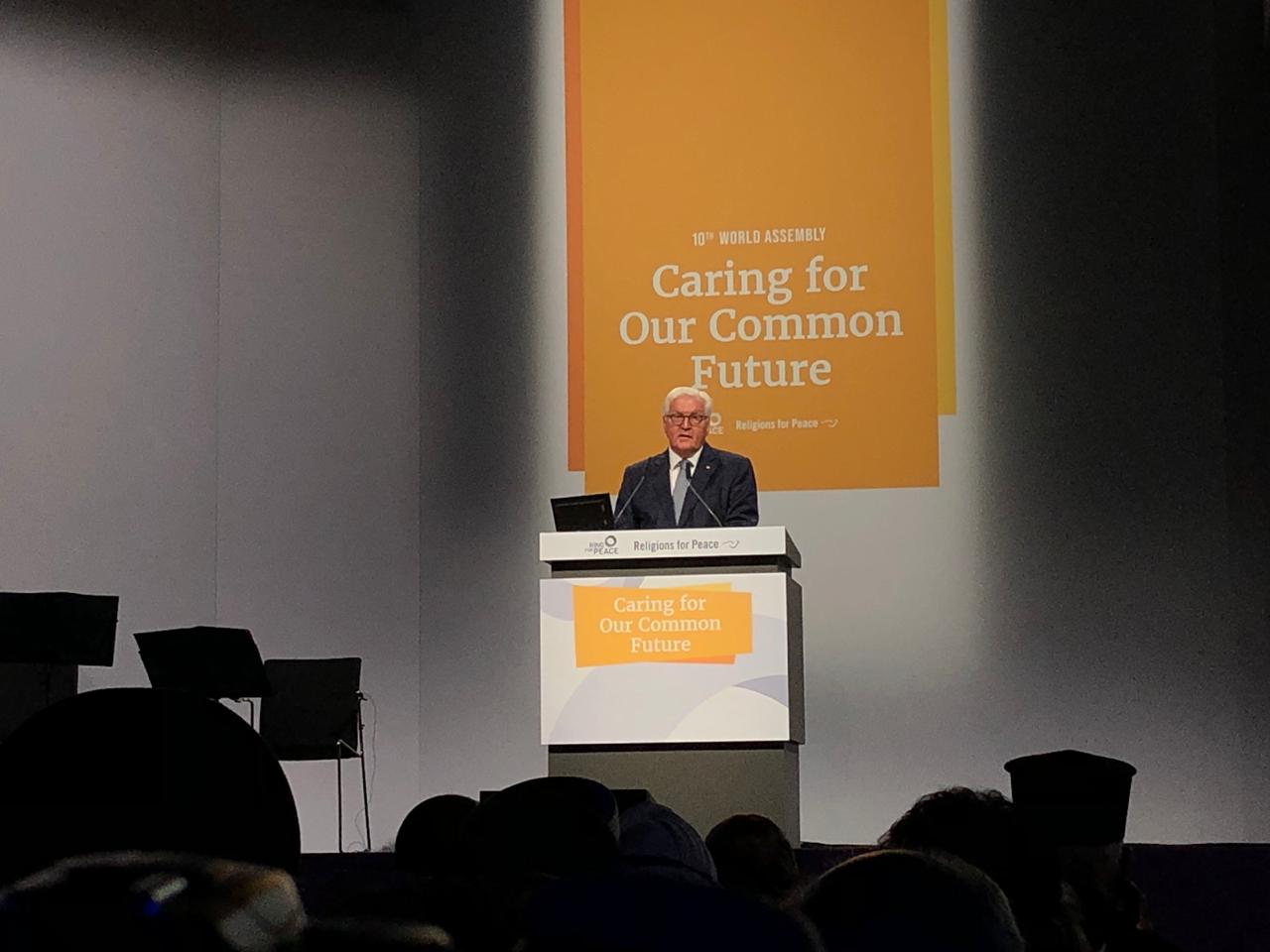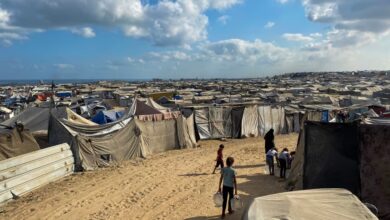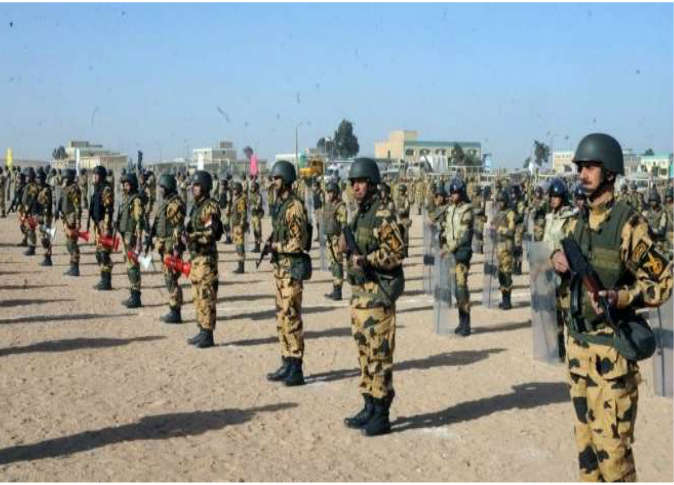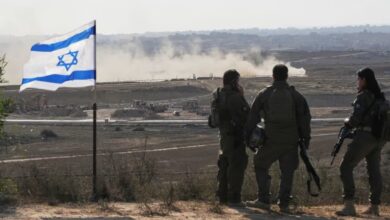
The Religions for Peace (RfP) conference began its 10th World Assembly in Lindau, Germany, from 20-23 August 2019 under the assembly theme “Caring for our Common Future”.
Roughly 900 representatives from various religions and beliefs around the world took part in the event.
Egypt’s Minister of Immigration Nabila Makram participated in the conference as a representative of the Egyptian delegation, which included a number of scholars and clerics.
German President Frank Steinmeier delivered the opening speech, stressing on the conference’s importance towards consolidating world peace and eliminating wars for religious pretexts.
He said that he dreamed of seeing a united world not split over any religious disagreements, and added that people who use religion as a means of terrorism are those who lose their credibility and humanity.
Peace means to live properly, and does not mean that everyone only recognizes one belief, he said. This conference calls for the need to keep religion away from political conflicts and wars, he continued.
He stressed that Europe had succeeded in getting rid of religious conflicts, citing the religious wars that occurred in Germany in the middle ages that led to the killing of hundreds, which Germany eventually resolved.
“We must make religion a means for peace,” Steinmeier said.
The conference then screened a short film about the world’s religious conflicts and released videos condemning the oppression of Muslims in Myanmar.
It also condemned religious conflicts in Nigeria and stressed that the world is at a critical stage, especially after the escalating of the climate change crisis which threatens the security and safety of the world.
Bartholomew I of Constantinople, the Archbishop of Constantinople and Ecumenical Patriarch whose followers exceed 300 million people worldwide, expressed his happiness at participating in the conference, calling on everyone to spread the conference’s message throughout the world in order to end wars that have shed the blood of innocent people.
He added that the Orthodox Church in Constantinople always encourages interfaith dialogues and strives to spread the message of peace.
Makram told Al-Masry Al-Youm that she was the delegate of Pope Tawadros II ,of the Coptic Orthodox Church to the conference, adding that she delivered a speech on Tuesday morning where she cited the Egyptian state’s efforts in consolidating the dialogue between Islam and Christianity.
She stressed that the Egyptian state, represented by President Abdel Fattah al-Sisi, is keen to spread peace, citing the president’s inaugurations of a large mosque and cathedral in the New Administrative Capital.
She also referred to Al-Azhar’s role in establishing a peaceful dialogue with the Church through the Family House.
Al-Azhar Grand Sheikh Ahmed Al-Tayyeb contributed to the launch of peace dialogue with Pope Francis, both during the Pope’s visit to Egypt in 2017 and in the UAE earlier this year, she said.
Makram said she also expanded the efforts of the Egyptian state in empowering Egyptian women and the role of the National Council for Women in this regard.
The Religions for Peace Association (RfP) is the largest and most representative multi-religious coalition, consisting of the world’s religious communities joint work towards for peace. The RfP global network consists of approximately 100 international associations (multi-religious councils), six regional interfaith bodies and a world council of senior religious leaders.
A statement on the RfP’s official website reads “[The RfP] the world’s largest and most representative multi-religious coalition—advances common action among the world’s religious communities for peace. Religions for Peace works to transform violent conflict, advance human development, promote just and harmonious societies, and protect the earth. The global Religions for Peace network comprises a World Council of senior religious leaders from all regions of the world; six regional inter-religious bodies and more than 90 national ones; and the Global Women of Faith Network and Global Interfaith Youth Network.”




